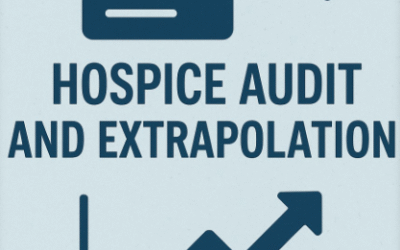What is a hospice election statement?
A hospice election statement is a condition of payment under Medicare. For a patient to be eligible to receive hospice services under the Medicare benefit, the patient or the patient’s authorized representative must elect hospice care by signing a hospice election statement. While Medicare provides a model of this form, each hospice agency is free to design their own hospice election form. However, there are some required elements, as specified by Medicare. To find out more details about the hospice election statement, read more at our blog post here: What is the Hospice Election Statement requirement?
Why is the hospice election statement important?
An invalid hospice election statement can impact payment for the entire patient hospice stay. There has been a recent rise in denials related to the election form. As such, it is important for hospice agencies to ensure that all required elements are present on the form and that the forms are completed accurately.
What are are tips for avoiding common hospice election form denials?
- Tip 1: Use the model election form provided by CMS or stick to something very close to it. This will ensure that no critical elements are missed. CMS has provided a model hospice election form. Hospice agencies are not required to use this model form; they may design their own election form.
- Tip 2: Focus on the purpose of the document and stick with the required elements, Over the years, hospices have had a tendency to add to their election forms so that it has been moving away from its original legal intent. While it is good to provide patients with additional information, the election form may not be the appropriate place to provide this information. By adding information to the election statement, there is a risk that upon audit contractors may find fault with aspects of the document that are not part of Medicare’s required elements of the election statement. In other situations, contractors missed the election statement since it was buried in a such a long document.
- Tip 3: build in redundancy in the elements of the elements of the hospice election statement. Use the admission material to build in redundancy of the required elements of the hospice election statement. That is, the required elements can be included in the election statement but some of the election statements which, for example, are acknowledgement statements, can be included in other admission material that is provided to the patient on admission. This could be helpful to defend potential claim denials or invalid denials in case of audit.
- Tip 4: Reduce the possibility of errors in completing the forms, by stressing the importance of the forms, creating standardized processes, and leveraging technology. Reduce human error by ensuring that the individuals responsible for completing the documents understand their importance. Human error is the biggest problem with properly completing the hospice election statement form. Create processes to double check the forms – in real time. Leverage technology, where possible, to eliminate the possibility of errors or to detect errors.
Where can you find more information?
- Listen to this Husch Blackwell podcast for an expanded version of this blog: The Importance of the Hospice Election Statement
- Read more about the required elements of the hospice election statement: Hospice Election Requirements





0 Comments